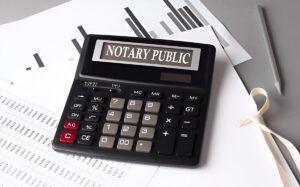
The Certified Public Accountant (CPA) designation is one of the most prestigious and globally recognized accounting credentials. It opens doors to a wide range of career opportunities in finance, auditing, taxation, and consulting. If you’re aiming for a successful career in accounting, understanding the CPA course details and CPA course duration is the first step in your journey.
In this comprehensive guide, we’ll cover everything you need to know about the CPA course in 2025—from eligibility and subjects to the timeline and structure.
What is the CPA Course?
The CPA (Certified Public Accountant) course is a professional certification program that validates an individual’s expertise in accounting and related fields. It is recognized across many countries and is especially valued by multinational companies and accounting firms.
The CPA credential demonstrates proficiency in areas such as financial accounting, management accounting, taxation, auditing, and regulatory frameworks. The certification is governed by bodies in various jurisdictions, with the United States CPA license being the most widely pursued globally.
Who Should Pursue the CPA Course?
The CPA course is ideal for:
- Accounting and finance graduates
- Working professionals in audit, taxation, or consulting
- Individuals looking for international career opportunities
- Students aspiring to become global accounting professionals
The course is also suited for individuals who wish to strengthen their credibility and earn a competitive edge in the finance and accounting job market.
CPA Course Details: Eligibility Criteria
One of the most important aspects of CPA course details is the eligibility criteria. Though requirements may vary depending on the jurisdiction, here are the general guidelines followed in most cases:
- Educational Qualification: A bachelor’s degree in accounting, finance, or a related field is typically required. Some regions may require 120–150 credit hours of education, which roughly equates to a postgraduate qualification.
- Work Experience: Certain jurisdictions may require candidates to have prior experience in accounting or auditing, usually under a licensed CPA.
- Ethics Exam: Some regions mandate an ethics exam as a part of the licensing process.
CPA Course Structure
The CPA exam is designed to assess a candidate’s expertise across multiple domains. As of 2025, the CPA exam follows a Core + Discipline model.
Core Sections:
These are mandatory for all candidates:
- Auditing and Attestation (AUD)
- Financial Accounting and Reporting (FAR)
- Taxation and Regulation (REG)
Discipline Sections:
Candidates choose one from the following three based on their interest or career goals:
- Business Analysis and Reporting (BAR)
- Information Systems and Controls (ISC)
- Tax Compliance and Planning (TCP)
This new model allows for greater specialization while ensuring a strong foundation in core accounting principles.
CPA Course Duration: How Long Does It Take?
When discussing CPA course duration, it’s important to note that the total time required can vary depending on a candidate’s schedule, study plan, and prior preparation.
Here’s a general timeline breakdown:
- Study Time per Section: On average, each section may require 2 to 3 months of focused preparation.
- Total Duration: Most candidates complete the entire CPA course in 12 to 18 months.
- Exam Window: Candidates must pass all four sections within an 18-month rolling window, starting from the date they pass their first exam section.
Candidates who are working professionals or studying part-time may take longer, while full-time students may finish sooner.
CPA Exam Format and Scoring
Understanding the exam format is a crucial part of CPA course details. Each section of the CPA exam consists of a combination of:
- Multiple-Choice Questions (MCQs)
- Task-Based Simulations (TBS)
- Written Communication Tasks (only in selected sections)
The exam is computer-based and conducted in designated test centers or via online proctoring in some regions.
Each section is scored on a scale of 0–99, with a passing score of 75 required in each part. The exam is rigorous and tests both theoretical understanding and practical application.
How to Prepare for the CPA Course
Here are some preparation tips to help you succeed:
- Create a Study Plan: Break your syllabus into manageable chunks and allocate time accordingly.
- Use Standard Study Materials: Stick to reliable and updated course content that aligns with the 2025 exam structure.
- Practice Mock Exams: Take simulated tests to get a feel of the exam format and improve time management.
- Join Study Groups: Collaborative learning can be very effective for difficult topics.
- Stay Consistent: Regular study, even for shorter durations, is more effective than long but infrequent sessions.
Career Opportunities After CPA Certification
Once you’ve cleared the CPA exams and fulfilled licensing requirements, you open the door to a wide range of global career opportunities. CPAs are in high demand in areas such as:
- Public accounting firms
- Corporate finance
- Internal and external audit
- Tax advisory
- Government and regulatory bodies
- Risk management and compliance
Whether you choose to work domestically or pursue roles abroad, a CPA license can significantly boost your credibility and salary potential.
CPA Course Benefits
Here are some key advantages of pursuing the CPA course:
- Global Recognition: The CPA credential is respected worldwide.
- Higher Earning Potential: CPAs generally earn more than non-certified counterparts.
- Job Security: The demand for skilled accountants and auditors remains high.
- Career Growth: Certification opens doors to senior-level roles and leadership positions.
- Professional Credibility: Being a CPA sets you apart as a trustworthy and knowledgeable finance professional.
Final Thoughts
The CPA course is a gateway to a high-profile and rewarding career in the world of accounting and finance. By understanding the CPA course details and planning according to the CPA course duration, you can set realistic goals and prepare effectively.
Whether you’re a recent graduate or a working professional, 2025 is a great time to begin your CPA journey. With a well-structured plan and consistent effort, achieving CPA certification is entirely within your reach.

